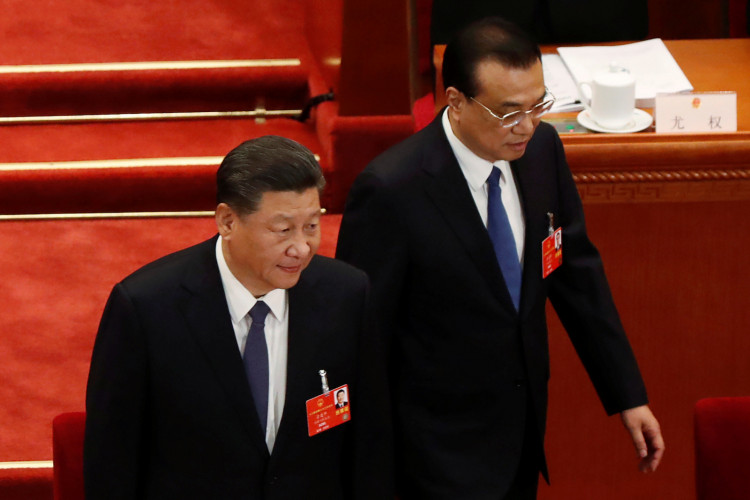The sudden demise of China's former Premier, Li Keqiang, at the age of 68 due to a heart attack, has sent ripples across the political landscape of the country. Li, who served as China's top economic official for a decade, was known for his pragmatic approach to governance, often standing in stark contrast to the more ideologically driven leadership of President Xi Jinping.
Li's tenure as China's No. 2 leader from 2013 to 2023 was marked by his advocacy for private businesses and a more open economy. However, his influence waned as Xi centralized power, emphasizing tighter control over the economy and society. Despite his significant contributions, Li found himself marginalized, especially after Xi's decision to award himself a third five-year term as party leader in 2022.
The former premier's pragmatic approach to governance was evident in his economic policies. He was known for his candid acknowledgment of China's economic challenges and sought solutions by focusing on development rather than ideological rigor. This was exemplified by the "Li Keqiang Index," where he reportedly told the US ambassador in 2007 that he relied on railway cargo volume, electricity consumption, and bank loan disbursements as indicators of economic health rather than the official GDP figures.
Li's approach to the COVID-19 pandemic also showcased his practical mindset. He openly discussed the economic repercussions of Xi's zero-Covid strategy, emphasizing the need for development to support employment and people's livelihoods. His unmasked appearance at a university in Yunnan in 2022, amidst the pandemic, sparked discussions on social media, reflecting his popularity among the masses.
However, Li's tenure was not without challenges. His push for the revival of street stalls as a means to boost the economy was quickly overturned by Beijing's city government, highlighting his diminishing influence. This incident, among others, underscored the shift from the collective leadership of the Hu Jintao era to Xi's more centralized approach.
The passing of Li Keqiang has raised concerns about potential political upheavals, reminiscent of the aftermath of the deaths of leaders like Mao Zedong and Hu Yaobang. The Communist Party, wary of any instability, has initiated measures like a crackdown on VPN use to limit access to uncontrolled parts of the internet. The objective is clear: to prevent widespread mourning for Li from evolving into criticism of the current administration.
Li's death, coming on the heels of the unexplained removal of high-profile Foreign and Defence Ministers, adds to its potential sensitivity. The official ceremonies commemorating him will be meticulously managed to ensure they align with the government's current narrative.
In retrospect, Li Keqiang's legacy is one of a bright pragmatist who navigated the complexities of Chinese politics with grace and determination. His vision for China, although often overshadowed by the dominant narrative, will be remembered by many as a beacon of hope for a more open and progressive nation.





